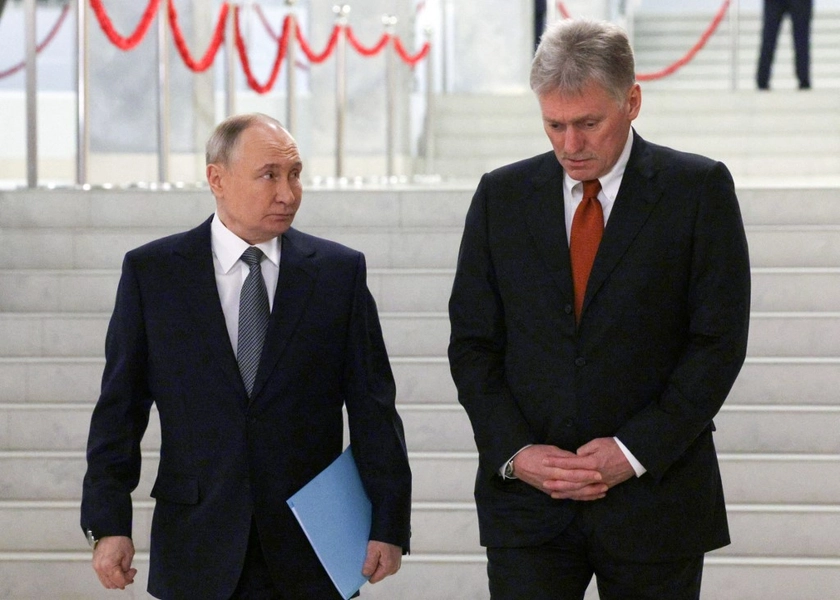Russia’s Ministry of Internal Affairs issued a memo on Tuesday to locals in the Kursk, Belgorod and Bryansk regions bordering Ukraine against the use of CCTV and dating sites to prevent Kyiv from collecting intelligence during its offensive in the regions.
It said Kyiv can remotely collect intelligence from CCTV footage and hinted that using dating apps can enable “the covert collection of information” by Ukraine.
JOIN US ON TELEGRAM
Follow our coverage of the war on the @Kyivpost_official.
“The enemy is massively identifying IP ranges in our territories and connecting to unprotected video surveillance cameras remotely, viewing everything from private yards to roads and highways of strategic importance.
“In this regard, if there is no urgent need, it is better not to use video surveillance cameras,” the ministry told Russian journalists, according to Interfax Russia.
“It is highly discouraged to use online dating services. The enemy actively uses such resources for the covert collection of information,” it added.
Molfar, a Ukrainian risk assessment and analysis firm, has previously lured lonely Russian troops on dating sites to share information that is then passed on to the Ukrainian military.
Russia’s Ministry of Internal Affairs also asked locals to stop posting dashcam footage on social media or sharing live streams while driving as they might inadvertently show military equipment deployed on public roads.

Worldwide Marches Planned This Weekend Condemning 3rd Anniversary of Russia’s Full-Scale Invasion of Ukraine
In May, a video on social media showed Russian troops firing rockets from a highway in the Belgorod region surrounded by civilian cars amidst its offensive on Ukraine’s Kharkiv region.
Additional orders for Russian troops
The ministry also issued additional orders to local military and law enforcement personnel to further prevent intelligence leaks. These measures include the removal of all geolocation tags and identifiable personal information from their devices.
It also advised troops not to open unrecognized links and to avoid using devices that contain both official and personal information in circumstances “when the enemy can gain physical access to them.”
Russian police said, “It is necessary to control and moderate chats, and promptly delete from them the accounts of people who have been captured by the enemy, as well as the accounts of people whose phones the enemy has gained access to.”
Russia’s Ministry of Internal Affairs also cautioned troops to disable the “People Nearby” function in the Telegram messenger and change their nicknames on social media that might indicate their military affiliation.
“If your number appears in search results as recorded by third parties as ‘Lesha FSB,’ ‘Pasha Rosgvardia,’ ‘Misha 123 Regiment,’ this number needs to be changed, it has been compromised,” the ministry’s press service said.
Ukraine launched a surprise offensive into Russia’s Kursk region on Aug. 6, leading to the declaration of federal emergencies in the region and later in the neighboring Belgorod region.
On Monday, Aug. 19, Ukrainian President Volodymyr Zelensky said Ukraine captured 92 settlements in Russia’s Kursk region.
You can also highlight the text and press Ctrl + Enter











